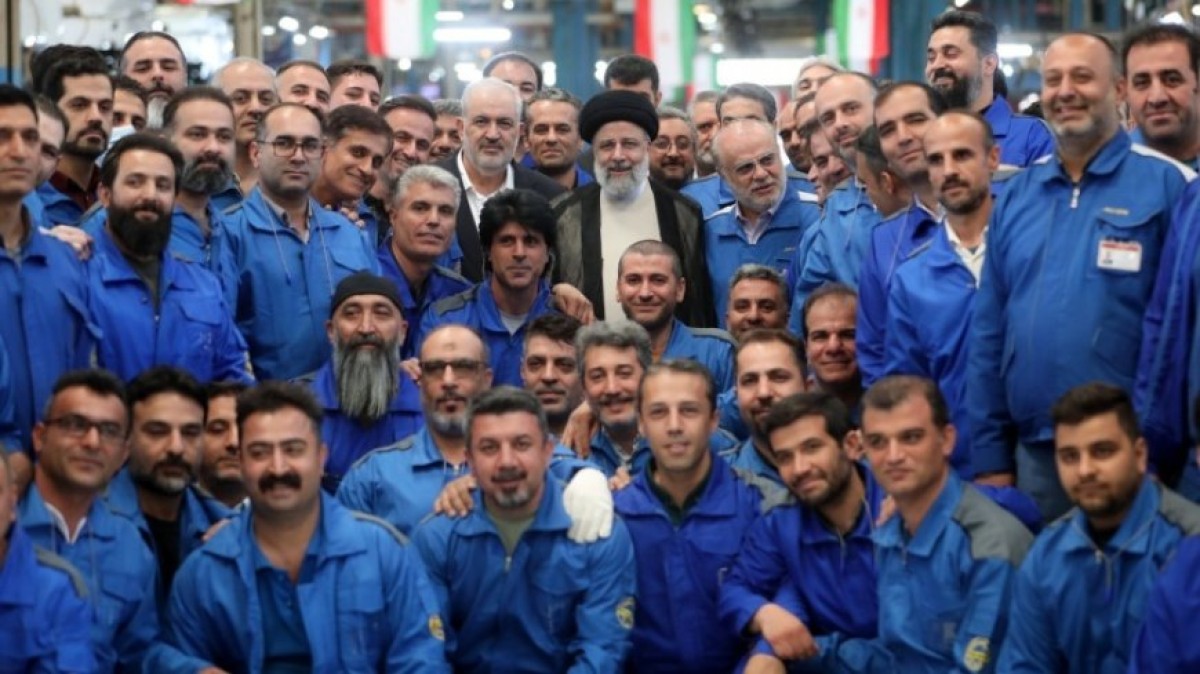 1206
1206
World Bank Commends Economic Success of Iran's Presidential Government
World Bank Commends Economic Success of Iran's Presidential Government
The World Bank has recently lauded the economic achievements of Iran under the presidential government, attributing the country's steady growth over the past four years to effective policies despite enduring economic sanctions and geopolitical uncertainties. The report highlights that both the oil and non-oil sectors have significantly contributed to this growth, with services and industry emerging as the primary engines of economic expansion.
The World Bank has recently lauded the economic achievements of Iran under the presidential government, attributing the country's steady growth over the past four years to effective policies despite enduring economic sanctions and geopolitical uncertainties. The report highlights that both the oil and non-oil sectors have significantly contributed to this growth, with services and industry emerging as the primary engines of economic expansion.
According to the World Bank, the Iranian economy's resilience is partly due to strategic shifts in the production sector, which have been geared towards meeting domestic demands. This approach has helped to mitigate the adverse effects of financial and trade sanctions and the limitations on accessing foreign exchange resources. Notably, the employment sector has bounced back to pre-COVID-19 levels, reflecting a robust recovery.
The report underscores the impact of new fiscal policies, particularly in social security and cash aid transfers, which have played a crucial role in cushioning vulnerable populations from external economic shocks. These measures have not only sustained economic growth but also improved living standards for many Iranians. In the first half of the 2023-2024 fiscal year, Iran's economic growth reached 5.1%, with the unemployment rate dropping to 7.6%.
The World Bank detailed the contributions of different sectors to this growth. The oil sector's added value surged by 17.1%, driven by global market shortages and the Iranian government's successful export-oriented strategies. Meanwhile, the non-oil sector grew by 3.8%, further boosting employment and reducing the unemployment rate to a new low.
A significant achievement of the current government is the notable reduction in poverty. Between 2020-2021 and 2022-2023, the poverty rate decreased by 7.4%, and the population living below the poverty line dropped by 2.2%. This period also saw a reduction in income inequality, as evidenced by the Gini coefficient's decline from 35.8% to 34.8%. The bottom 40% of income earners experienced higher consumption growth compared to the top 60%, indicating a more equitable distribution of wealth.
Additionally, the World Bank reported that inflation in Iran continues to decline, contributing to a positive economic outlook. The country's economic growth is projected to moderate to 2.8% in the coming years (2024-2025 and 2025-2026) as the substantial growth in oil production and exports seen in 2023-2024 begins to stabilize. Despite these changes, the non-oil sector is expected to maintain its upward trajectory.
Iran's current account balance remains in surplus, although this surplus is anticipated to gradually decrease due to declining global prices and increased international competition. Nevertheless, the trend of reducing poverty is expected to continue, driven by sustained economic policies and efforts to improve social welfare.
In conclusion, the World Bank's assessment paints a positive picture of Iran's economic management, highlighting the effectiveness of the government's policies in fostering growth, reducing poverty, and managing inflation, despite significant external challenges.
 1206
1206
Comment
Post a comment for this article